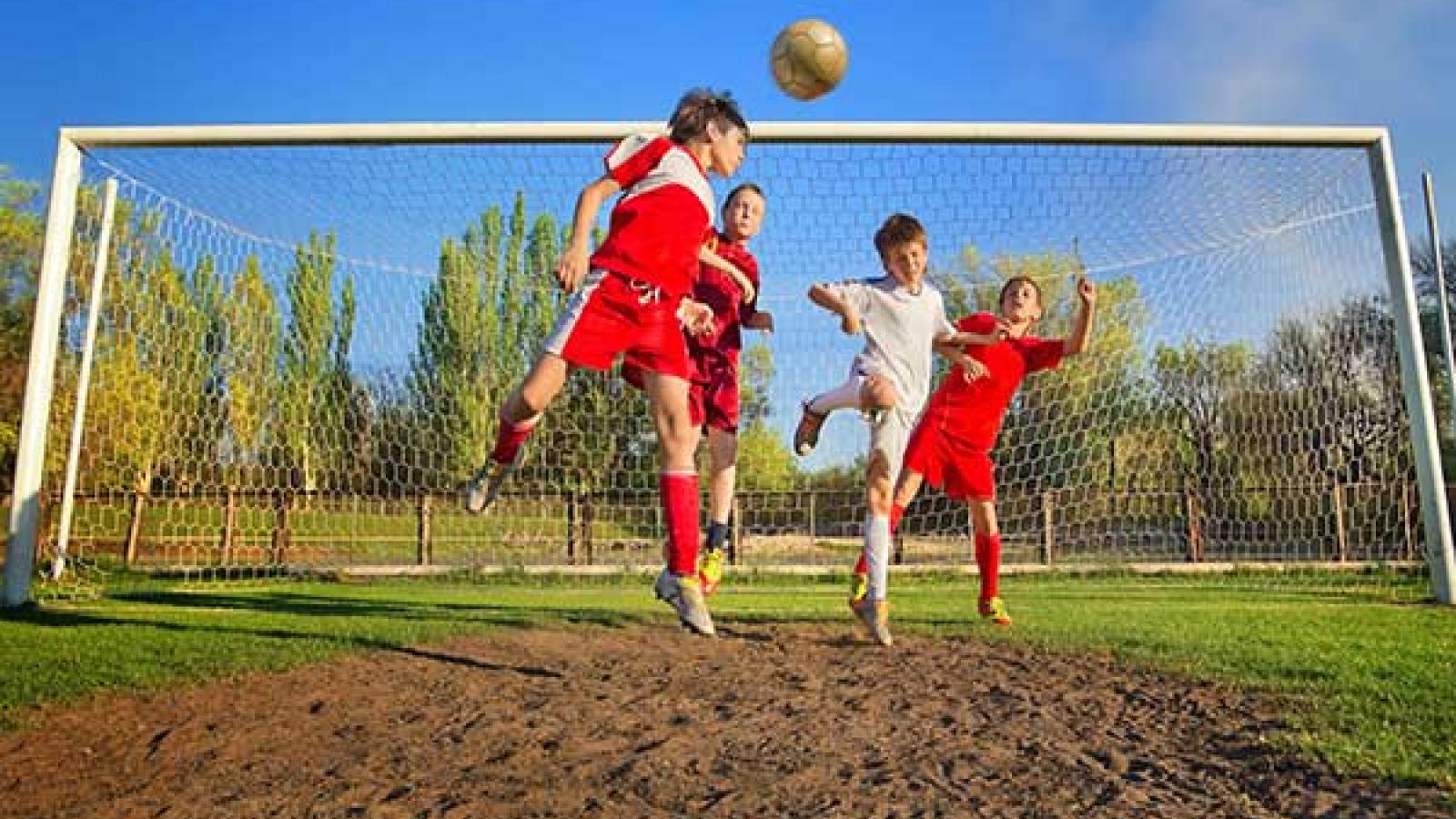Get a Heads Up on Concussion

How to recognize and respond to possible head injuries.
As concern about concussions among youth athletes grows, experts are increasingly urging coaches, parents and athletes to exercise extreme caution when dealing with possible head injuries. The decisions made immediately following a concussion can determine whether an injured athlete will fully recover.
Knowing what the signs of a possible concussion are, what to do if you suspect someone has a concussion and when it's okay to resume normal activities is extremely important to maintaining brain health. The Centers for Disease Control and Prevention (CDC) even created concussion training materials aimed at keeping young athletes safer.
All 50 states in the U.S. have laws designed to protect young athletes suspected of having a head injury. But according to a recent study, 38% of athletes who got a concussion returned to play on the same day. This can be potentially dangerous.
What is a concussion?
Concussions are caused by a direct or indirect blow to the head that causes the brain to bounce around within the skull. This can damage brain cells or cause chemical changes in the brain.
What are the signs of a possible concussion?
Signs of concussion may show up minutes, hours or days after injury and can include:
- Appearing to be dazed or stunned
- Difficulty concentrating or feeling confused
- Headache
- Nausea or vomiting
- Dizziness, blurry vision or balance problems
- Slurred speech, weakness, numbness or loss of coordination
- Sensitivity to noise or light
- Irritability, moodiness, sadness or nervousness
- Excessive sleepiness or difficulty waking up
- Loss of consciousness, convulsions or seizures
What should you do if you suspect a concussion?
- Don't let the person return to play on the day of injury.
- See a healthcare provider experienced in evaluating concussions. Don't try to judge the severity of the injury yourself.
- Follow doctor's instructions carefully.
Athletes who return to sports or activities too soon have a greater risk of getting another concussion. Repeat concussions can be very serious and may have lifetime consequences.
Copyright 2017-2021 © Baldwin Publishing, Inc. All rights reserved. Health eCooking® is a registered trademark of Baldwin Publishing, Inc. Cook eKitchen™ is a designated trademark of Baldwin Publishing, Inc. Any duplication or distribution of the information contained herein without the express approval of Baldwin Publishing, Inc. is strictly prohibited.
Date Last Reviewed: February 16, 2017
Editorial Review: Andrea Cohen, Editorial Director, Baldwin Publishing, Inc. Contact Editor
Medical Review: Perry Pitkow, MD
Learn more about Baldwin Publishing Inc. editorial policy, privacy policy, ADA compliance and sponsorship policy.
No information provided by Baldwin Publishing, Inc. in any article is a substitute for medical advice or treatment for any medical condition. Baldwin Publishing, Inc. strongly suggests that you use this information in consultation with your doctor or other health professional. Use or viewing of any Baldwin Publishing, Inc. article signifies your understanding and agreement to the disclaimer and acceptance of these terms of use.

